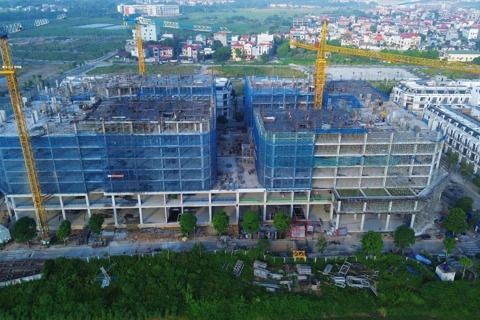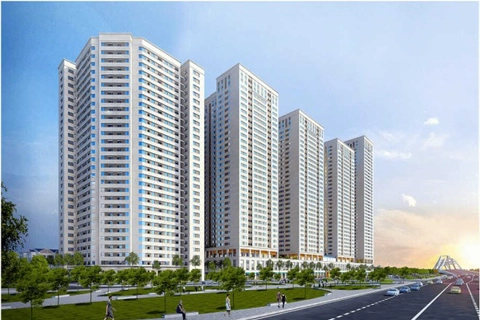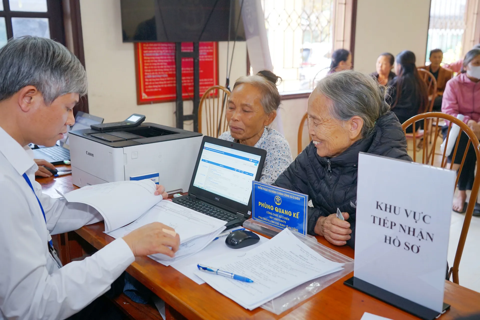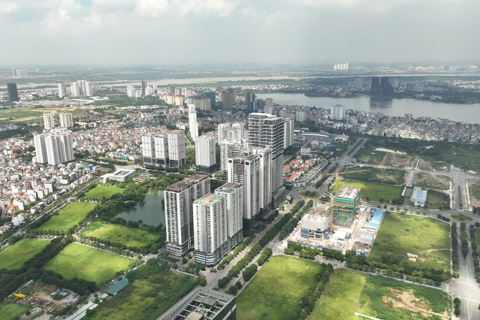Property
Hanoi may replace all African mahogany trees
Jun 03, 2017 / 01:42 PM
Hanoi aims to replace more than 4,000 xa cu (African mahogany, scientific name Khaya senegalensis) trees at risk of falling down, threatening the safety of citizens in the stormy season.
The statement was made at a conference between the municipal Department of Construction and scientists and experts on if the city should plant more African mahogany trees.
Currently, there are more than 4,000 African mahogany trees in the city. Many are located in inner districts and on key roads such as Hoang Dieu, Le Hong Phong, Hoang Van Thu, Hoang Hoa Tham, La Thanh and Yen Phu.
African mahogany trees have large branches and easily fall down in bad weather. Nguyen Xuan Hanh, deputy director of Hanoi Green Tree and Park One Member Co Ltd, said that most of the trees were not tended to regularly, allowing them to grow naturally, reaching for light with tilted and curved branches, affecting the city’s beauty.
African mahogany trees do not have high economic value. In addition, the roots need a lot of space to develop while the city’s pavements are narrow with much underground construction. This affects the solidity of the trees and make them easily fall.
Dao Ngoc Nghiem, Vice Chairman of the Hanoi Association of Urban Planning and Development, said that African mahogany trees should not be planted in the city as their roots impact infrastructure, the beauty of the city and pavements.
However, he said, the city needed to conduct careful surveys, classify rotten trees and consider preserving African mahogany trees in some areas. PhD Pham Van Dien, former director of the University of Agriculture suggested that the city assign a group to conduct surveys, collect information, build the plan and collect opinions from the public before implementing it.
Vo Nguyen Phong, director of the construction department said the department would report to the city’s People’s Committee on the status of the African mahogany trees and the impacts of biochemical soil on the city.
About 1,000 trees on Pham Van Dong Street in Hanoi’s Cau Giay District will be cut down, 158 moved and 142 pruned for the expansion of Ring Road 3. The trees are set to be cut and pruned before September 30, according to the road’s construction plan.
Pham Van Duan, deputy director of the Hanoi Traffic Construction Project Management Board, said the board inspected the trees between April 18 and 20. About 986 of the 1,300 trees are African mahogany trees of 0.4-1.2m diameter, he said. The Hanoi Green Tree and Park Company will be in charge of cutting, moving and pruning the trees, Duan added. It will be tough to complete the process before September 30 as the city’s construction department has yet to give the company permission to go ahead with the task, he said.
The Hanoi People’s Committee started the Ring Road 3 expansion project last October. The extended stretch of the road, from the south end of Mai Dich flyover to the south end of Thang Long Bridge, will be 5.5km long, 56 to 93m wide and will have six traffic lanes, two of which will accommodate mixed traffic. The project costs 3 trillion VND (136.5 million USD), and requires 392,000sq.m of land to be cleared and 796 households and 55 office buildings to be removed.
Currently, there are more than 4,000 African mahogany trees in the city. Many are located in inner districts and on key roads such as Hoang Dieu, Le Hong Phong, Hoang Van Thu, Hoang Hoa Tham, La Thanh and Yen Phu.

Hanoi City has over 4,000 old African mahogany trees. Photo: Ba Do
|
African mahogany trees do not have high economic value. In addition, the roots need a lot of space to develop while the city’s pavements are narrow with much underground construction. This affects the solidity of the trees and make them easily fall.
Dao Ngoc Nghiem, Vice Chairman of the Hanoi Association of Urban Planning and Development, said that African mahogany trees should not be planted in the city as their roots impact infrastructure, the beauty of the city and pavements.
However, he said, the city needed to conduct careful surveys, classify rotten trees and consider preserving African mahogany trees in some areas. PhD Pham Van Dien, former director of the University of Agriculture suggested that the city assign a group to conduct surveys, collect information, build the plan and collect opinions from the public before implementing it.
Vo Nguyen Phong, director of the construction department said the department would report to the city’s People’s Committee on the status of the African mahogany trees and the impacts of biochemical soil on the city.
About 1,000 trees on Pham Van Dong Street in Hanoi’s Cau Giay District will be cut down, 158 moved and 142 pruned for the expansion of Ring Road 3. The trees are set to be cut and pruned before September 30, according to the road’s construction plan.
Pham Van Duan, deputy director of the Hanoi Traffic Construction Project Management Board, said the board inspected the trees between April 18 and 20. About 986 of the 1,300 trees are African mahogany trees of 0.4-1.2m diameter, he said. The Hanoi Green Tree and Park Company will be in charge of cutting, moving and pruning the trees, Duan added. It will be tough to complete the process before September 30 as the city’s construction department has yet to give the company permission to go ahead with the task, he said.
The Hanoi People’s Committee started the Ring Road 3 expansion project last October. The extended stretch of the road, from the south end of Mai Dich flyover to the south end of Thang Long Bridge, will be 5.5km long, 56 to 93m wide and will have six traffic lanes, two of which will accommodate mixed traffic. The project costs 3 trillion VND (136.5 million USD), and requires 392,000sq.m of land to be cleared and 796 households and 55 office buildings to be removed.








